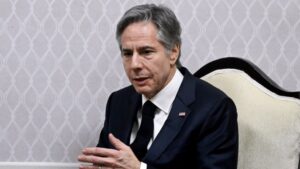February Saw A Drop In US Retail Sales Despite Higher Inflation.
 According to statistics from the Commerce Department issued on Wednesday, retail sales in the United States decreased in February as a result of losses in sales at restaurants and department and furnishing shops.
According to statistics from the Commerce Department issued on Wednesday, retail sales in the United States decreased in February as a result of losses in sales at restaurants and department and furnishing shops.
After a strong recovery at the beginning of the year, economic figures have cooled down as consumers feel the effects of ongoing inflation.
With the stunning collapse of Silicon Valley Bank (SVB) last week, the data is expected to provide the Federal Reserve some relief as it attempts to reconcile its efforts to restrain price rises with persistent problems in the banking industry.
The Commerce Department said that seasonally adjusted retail sales decreased by 0.4 percent in February to $698 billion from a revised $701 billion a month earlier.
Consumer spending at department shops, car dealers, restaurants, and bars all decreased, according to data.
Although purchases at furniture and home furnishing shops fell by 2.5 percent, purchases at department stores fell by 4%.
Retail sales decreased in February, but not significantly enough to indicate a significant decline in consumer spending, according to Oxford Economics’ Oren Klachkin.
The most recent results were released after consumer inflation data, which revealed a day earlier that price rises were continuing to slow down.
Nonetheless, inflation indices continue to be much higher than the Fed’s long-term objective of 2%.
Regional banks are leading the market reaction to the Fed’s aggressive campaign as it considers raising interest rates for a ninth week in a row.
Due to its holdings of long-term bonds, SVB was overexposed to interest rate risks, which contributed to its collapse last week.
The bulk of the bank’s clientele were in the high-tech industry, and as the Fed’s campaign ended the period of low interest loans, they started to withdraw their funds.
Customers panicked about their savings, forcing the bank to experience losses on its bonds as a result of this outflow.
The sale of banking stocks was briefly delayed over the weekend as US finance regulators took steps to guarantee SVB’s depositors would be able to recover their money.



